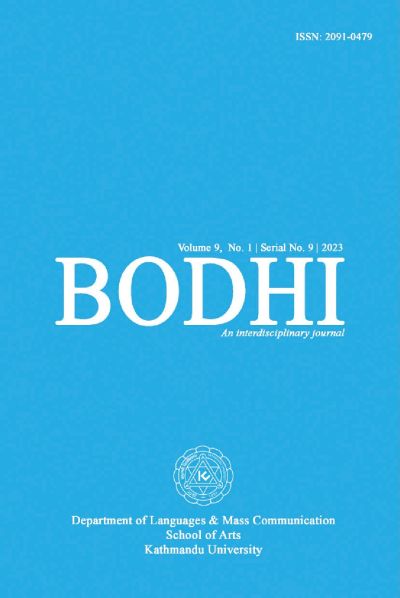Clientelism and its Influence in the Nepali Press
DOI:
https://doi.org/10.3126/bodhi.v9i1.61862Keywords:
clientelism, corruption, desk research, media performance, nepali pressAbstract
This review explores the clientelist structure in politics and its influence in Nepali media with two aims: first, to identify how the clientelist structure has been practiced and influenced media in Nepal; second, to identify how the media perform the functions of clientelist networks. This review uses desk research of post 1990 documents focusing on the practices of clientelist structure in personalized behavior of the leaders, volatile political culture, fragmented civic society, and mounting corruption index in Nepal. Clientelism was a widely practiced phenomenon and it weakened the ideological base of the political parties and became the causes of uncertainty in Nepali politics. The unstable politics decreased public trust and reputation of the politicians, and visibility became a major concern to the leaders while reaching out to the electorate. In this context, the media became a vital tool to communicate with the public for political goals. The power holders practice clientelism, appointing loyalties in the board of directors in the state-owned media, attempt to endorse press restricted bills, and distribute welfare advertisements and subsidies to the favorable media. The media owners practice clientelism, recruiting professionals with strong political ties, frequently changing editors and journalists to ensure balanced representation of different political connections. The journalists tend to establish political connections and cover news with limited ethical guidelines with reference to their allies and advocate the political strategies of their patronage. Besides political intervention, the shrinking economy in the limited media market, long history of political parallelism of the press and the strong presence of the role of the state might be the explanation for adopting clientelist networks in the media.
Downloads
Downloads
Published
How to Cite
Issue
Section
License
© Department of Languages and Mass Communication, School of Arts, Kathmandu University, Nepal




